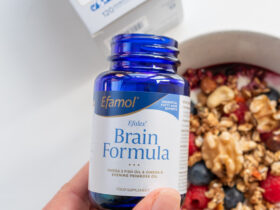You would have to have been hiding under a rock to have avoided the increasing concern our collective sugar intake has on our health – and leading Nutritionist, Dr Marilyn Glenville PhD, is here to help.
Dr Glenville, the author of Natural Alternatives to Dieting, reminds us that not only is it bad for our waistline, sugar can actually have a negative impact on the brain, causing issues to your memory, mood and mental capacity.
Here, she offers some easy and simple alternatives to help you combat those cravings:
- Memory: Excess sugar is very harmful, and even a slight lift in glucose levels in the bloodstream can be harmful to the brain, which can result in deficits in memory and slow cognitive function. So, it’s time to swap those sugary cherry drops for some naturally sweet dried fruit. Raisins and dates are great to fight off your sugar fix, and if you are into your cakes and tasty bakes, add raisins and sultanas to make a pie or crumble that little bit sweeter. Spices like cinnamon and vanilla also add lots of sweetness and flavour. Research has also found that reducing sugar consumption and supplementing with omega-3 fatty acids improves working memory.
- Mood: According to a brain imaging study in healthy young people, the ability to process emotion is compromised with elevated blood glucose. Another study found that people with type 2 diabetes reported increased feelings of sadness and anxiety during periods of elevated blood sugar. There is sugar in soups, tomato sauces, mayonnaise, salad dressings and even baked beans. Instead of relying on pre-made sauces, try making your own – this way you can control the amount of sugar or even swap it out completely.
- Mental capacity: Elevated blood glucose harms blood vessels, and this can be a major cause for vascular complications, such as diabetes. According to studies, frequent exposure to high glucose levels diminishes mental capacity, as higher HbA1c levels have been associated with a greater degree of brain shrinkage. Additional research also shows that a diet high in sugar reduces the production of brain-derived neurotropic factor (BDNF), a brain chemical which is essential for new memory formation and learning. Use fruits and vegetables in dishes and don’t be afraid of adding lots together. As your taste buds grow accustomed to doing without the very powerful taste of refined sugar, you will come to appreciate the natural sweetness of vegetables and fruits.












About Naturally Good Health
Naturally Good Health is Ireland's leading free natural health magazine. Pick it up from your local independent health store or read free online.